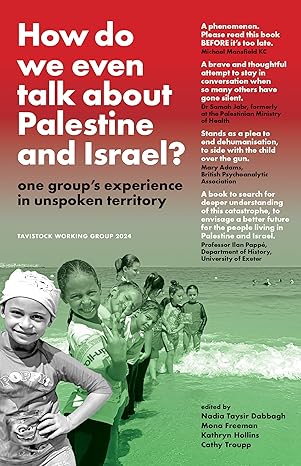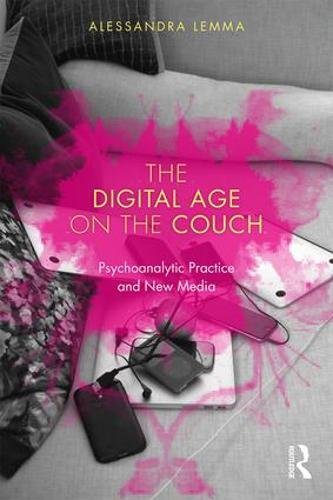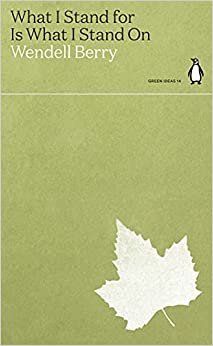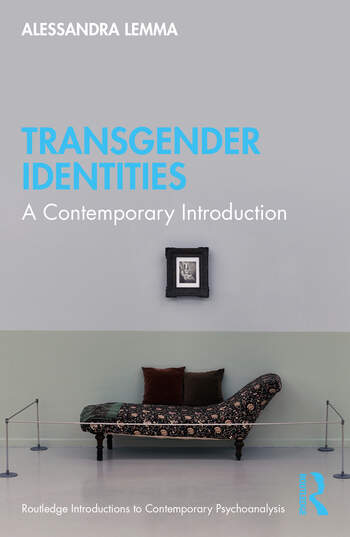How Do We Even Talk about Palestine and Israel?: One Group’s Experience in Unspoken Territory

Book Details
- Publisher : TWiG
- Published : August 2025
- Cover : Paperback
- Pages : 196
- Category :
Organisational Psychology - Catalogue No : 98411
- ISBN 13 : 9781036924119
- ISBN 10 : 1036924114
There are currently no reviews
Be the first to review
The world changed on 7 October 2023 when Hamas and other armed groups made incursions into Israeli territory from the Gaza Strip, resulting in the deaths of more than 1200 people and the taking of 251 hostages, in defiance of Israel's oppression of Palestinians in Gaza and the West Bank.
The response by Benjamin Netanyahu's government and the Israeli military has for the last two years brought terrible destruction to Gaza, flattening nearly all homes, hospitals and schools and universities and killing more that 55,000 people. The majority are women and children. Tens of thousands are missing under the rubble, as yet uncounted. The entire population of 2.3 million people have been forced from their homes and herded into enclaves, where they have been starved owing to the Israeli government's aid blockade. How will the world look back on this? How have we allowed this to happen? Could it have been prevented? What can we say?
One group of twelve child psychiatrists, psychologists and psychotherapists - with the welfare of children very much in mind - met fortnightly to discuss the insurmountable difficulties of the Palestine-Israel conflict and their feelings about the catastrophe streaming on their media.
Of course they couldn't produce answers, but they could pose questions and try to examine as honestly as possible how these events affect both the victims and aggressors. And what it told them about themselves and others and about history and politics in the world today. Is it useful to discuss such matters in a group - as they have been taught via the Tavistock methods? Can minds be changed? There will be friction, there will be deep disagreements and pain - even if nowhere near the pain experienced in Gaza.
Some contributors to this thought-provoking anthology come from Jewish or Palestinian heritage, others from different but divided and conflicted backgrounds. They have connections with history going back to the Balfour Declaration and to the Holocaust: a mother who lived through Kristallnacht and came to England on the Kindertransport; a father with shrapnel injuries from a grenade in Jaffa exiled in the Nakba. Individually and personally they also reflect on their participation in the group process. They express their complex feelings and evolving reactions through poems and essays, family memories, historical reminders and philosophical arguments. This courageous, far-reaching collection urges us all in the direction of sense and empathy, and a fuller understanding of the suffering of the catastrophe before our very eyes.
Reviews and Endorsements
A phenomenon. Please read this book BEFORE it's too late.
Michael Mansfield KC
A brave and thoughtful attempt to stay in conversation when so many others have gone silent.
Dr Samah Jabr, formerly at the Palestinian Ministry of Health
Stands as a plea to end dehumanisation, to side with the child over the gun.
Mary Adams, British Psychoanalytic Association
A book to search for deeper understanding of this catastrophe, to envisage a better future for the people living in Palestine and Israel.
Professor Ilan Pappé, Department of History, University of Exeter
This book makes these invisible wounds visible, giving voice to what is often unheard, and our suffering in silence, a complement to counting the dead, broken bodies and missing limbs.
Professor Rita Giacaman, Head of Public Health Department, Birzeit University, West Bank, Palestine
I have never read a more thoughtful yet passionate and anguished reflection on the present reality of mass killing, without neglecting the context of much-disputed Jewish and Arab history.
Carne Ross, former British diplomat who resigned during Iraq war
For us it's not about equating or excusing, but struggling to stay human to challenge systematic depravity. For the children's sake.
Sir Vincent Fean, Trustee, Britain Palestine Project
A unique therapeutic attempt to grapple with the trauma of Gaza.
Charlie English, author and former head of international news at The Guardian
Table of Contents
Foreword
M Fakhry Davids
Preface
Mona Freeman and Kathryn Hollins
Two peoples, one land
prayer by Rabbi Sheila Weinberg
Formation of the Tavistock Working Group 2024
Nadia Dabbagh and Sarah Wynick
This is why we dance
poem by Mohammad El-Kurd
Part I - The Collection
Putting all children first
Tavistock Working Group 2024
'Every bombed village is my hometown'
poem by Nikita Gill
The Balfour Declaration
Sebastian Kraemer
My name is Zain
Mona Freeman
Oh Rascal Children of Gaza
poem by Khaled Juma
On Wishing for Revenge
Cathy Troupp
On Leaning In
Nadia Dabbagh
I am You
poem by Refaat Alereer
Troubled sleep - rethinking my Jewish Identity
Sarah Wynick
The World Shook
Mona Freeman
On Reasons, Emotions and Dreams
Bernadette Wren
On a Different Divide
Cecilia Moyes
On Mothering
Aoife Roche
On Hatred (in Children)
Rob Senior
Call me by my true names
poem by Thich Nhat Hanh
Equality and Humanity (Interview)
Eran Efrati
My Uncle
Tom Kathryn Hollins
One tiny seed
poem by Rachel Goldberg-Polin
On Groups and Belonging
Graham Music
Cycles of Insecurity
Myooran Canagaratnatn
First They Came
poem by Pastor Martin Niemoller
PART II - Groups, Reflections and Themes
A Brief History of the Tavistock group concept
Sebastian Kraemer
Reflections on the Group
Nadia Dabbagh Group experiences and the Tavistock
Sebastian Kraemer 'The Group must have the capacity to face discontent'
Mona Freeman The Anxious Child
Bernadette Wren 'I joined this group of mental health professionals to think collectively about the impact on children ... '
Graham Music 'I generally struggle with groups'
Nadia Dabbagh 'The star dust dries up ... '
Cathy Troupp 'I am deeply grateful to the Group'
Mona Freeman Broken hearts
Nadia Dabbagh 'Nothing can be changed until it is faced ...'
Cecilia Moyes Bold and Courageous Leadership without Vengeance
Themes from the Tavistock Working Group 2024
Epilogue
John Launer
Appendices
Introduction to an Historical Timeline: Palestine and Israel My Catastrophe is Your Independence
Nadia Dabbagh and Sarah Wynick
Historical Timeline
Nadia Dabbagh and Sarah Wynick
Further Resources
Poet Contributors
Contributors
Epigraph
from Shakespeare Titus Andronicus
About the Editor(s)
Nadia Taysir Dabbagh is an Anglo-Palestinian child psychiatrist who trained at the Tavistock in the 2000's. Dubai Health's Chief of Division for Paediatric Mental Health in the UAE, she led Dubai's first Mental Health Strategy (2017) and Palestine's first Ministry of Health Child and Adolescent Mental Health Strategy, 'Every child deserves a childhood, every child deserves a future;' a Royal College of Psychiatrists and Medical Aid for Palestinians (MAP) project (2023). She wrote Suicide in Palestine: Narratives of Despair based on 1990's fieldwork. Nadia's father and father-in-law, both born in Palestine, were ten-year-old 'Nakba' refugees. Her husband's extended family live (and die) in Gaza.
Cathy Troupp is a Child and Adolescent Psychotherapist who trained at the Tavistock Clinic 2001-2005, having started her career as a staff writer on Cosmopolitan Magazine. Cathy worked at Great Ormond Street Hospital and was a leader of the NHS England funded National Training in Eating Disorders (2015-18), and later, Consultant Child and Adolescent Psychotherapist in the National Gender Identity Development Service. Cathy is currently Clinical Lead at the Refugee Council. Her own mother came to England as a refugee in 1939 on the Kindertransport. As a second-generation survivor of the genocide of the Jews, Cathy has long been a passionate activist for Palestine.
Mona Freeman is a British-born child psychiatrist of Pakistani heritage. She trained at the Tavistock and stayed on as a consultant until 2016. She was awarded the Laughlin Prize in 2003. She has written extensively for the public about mental health, contributing to books including The Young Mind (2009) and was a previous Series Editor of the Mental Health and Growing Up factsheets produced by the Royal College of Psychiatrists. She now works in independent clinical practice.
Kathryn Hollins is a Tavistock trained child psychiatrist and psychotherapist. As a student she volunteered in India and Cameroon, further developing her understanding of global inequalities with a Medical Anthropology Masters and travelling as a Churchill Fellow. Her commitment to equality began sharing childhood with her disabled brother, World War II-injured grandfather and changemaker parents. Together with a local authority team she leads collaborative work with health, education, social care and voluntary sector colleagues to build trusted relationships with babies, children and families and develop healthier, happier communities. In her clinical practice, she offers specialist psychotherapy and consultation during pregnancy, parenthood and family life.
Customer Reviews
Our customers have not yet reviewed this title. Be the first add your own review for this title.
You may also like
Jung on Ignatius of Loyola’s Spiritual Exercises: Lectures Delivered at ETH...
C.G. Jung
Price £20.00







